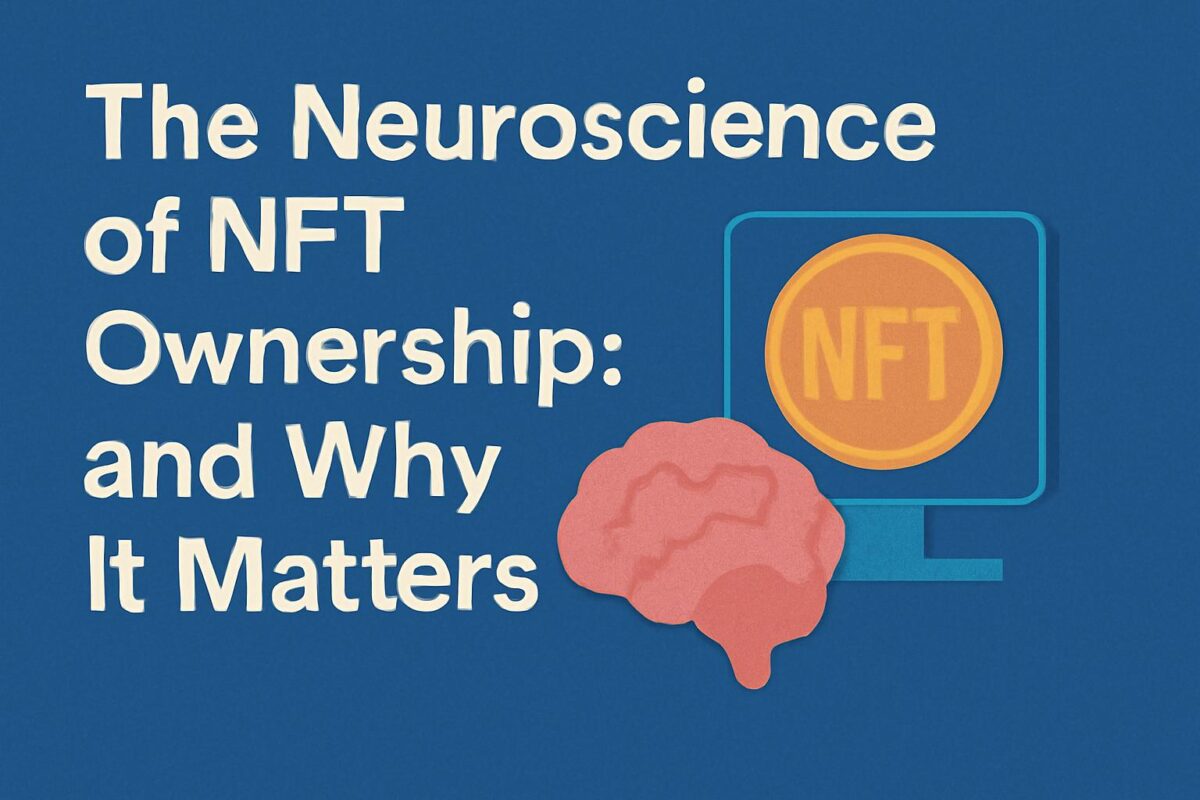The Neuroscience of NFT Ownership: and why it Matters.

What makes someone emotionally attached to a JPEG on the blockchain? The answer lies in neuroscience. As NFTs continue to gain cultural and financial significance, understanding the psychology of digital ownership becomes critical. From memory-linked identity to marketplace behavior, neuroscience of NFT Ownership offers a powerful lens to decode why NFTs matter. This blog explores the intersection of digital ownership and cognitive science, unpacking the emotional value NFTs hold, and how that affects user behavior, investor psychology, and NFT marketplace trends.
The Psychology Behind NFT Ownership
Humans assign meaning to ownership far beyond physical possession. Digital assets like NFTs evoke the same neurological responses as tangible property. Key psychological triggers include:
- Endowment effect: People overvalue NFTs they own
- Scarcity bias: Rare NFTs feel more desirable
- Emotional investment: NFTs tied to moments, artists, or communities carry emotional weight
This psychological framework fuels the rise of NFT marketplaces and influences how users perceive value, rarity, and identity on the blockchain.
ALSO READ: The Ultimate Guide to Snagging Undervalued Digital Collectibles
Neuroscience and the Brain’s Response to NFTs
Scientific studies show that the brain’s medial prefrontal cortex, linked to self-identity, activates when people evaluate owned items. With NFTs:
- Brain regions associated with reward and memory (like the hippocampus) light up
- Emotional and visual memory centers engage when users view their NFT collections
- This deepens user connection, retention, and repeated marketplace behavior
NFTs can even serve as cognitive anchors, storing memories, experiences, or achievements, making them neurologically relevant in ways traditional assets aren’t.
Digital Ownership and Blockchain Identity
On-chain ownership redefines identity in the digital world. NFTs symbolize:
- Personal expression (PFPs, avatars)
- Community affiliation (DAO membership tokens)
- Status signaling (rare NFT badges)
This enhances psychological ownership, when users feel something is “theirs,” even without physical possession. The blockchain ensures permanence, adding a sense of legacy and public validation.
Emotional Value and NFT Investor Behavior
NFT investing is not purely rational. Investors are guided by emotional factors such as:
- FOMO (fear of missing out)
- Community hype
- Personal attachment to NFT art or creators
Emotional value often trumps market logic. Neuroscience reveals that dopamine-driven behavior (anticipation of rewards) plays a large role in NFT flipping and collecting. Understanding this helps NFT platforms and investors anticipate buying patterns and emotional triggers.
NFT Memory Links and Psych-Based Market Trends
Some NFTs now act as memory capsules, digital souvenirs tied to events, milestones, or metaverse interactions. This memory link makes them personally irreplaceable, boosting their perceived value.
Emerging NFT marketplace trends shaped by neuropsychological principles include:
- Customizable avatars tied to user memory
- AI-powered NFT suggestions based on behavioral profiles
- Emotion-driven NFT rarity scoring
These developments leverage psych NFT investing models to increase user engagement and platform retention.



FAQs
Q1: Why do people feel emotionally connected to NFTs?
A1: NFTs activate the same brain regions associated with physical ownership and memory, triggering emotional attachment.
Q2: How does neuroscience influence NFT design?
A2: Developers use neuroscience and specifically neuroscience of NFT ownership to create emotionally resonant NFTs, tapping into reward systems and identity triggers.
Q3: Can NFTs represent identity?
A3: Yes. NFTs like avatars or membership tokens help users express identity, status, and community affiliation on-chain.
Q4: Are NFT investments rational?
A4: Often not. Emotional value, hype, and personal attachment heavily influence investor behavior in the NFT space.
Call to Action (CTA)
🧠 Want to understand what truly drives NFT engagement? Subscribe now for deeper insights into NFT psychology, digital ownership, and neuro-driven market trends.